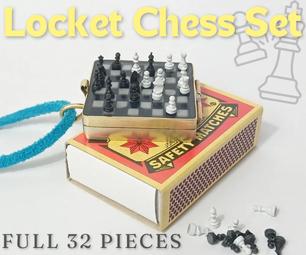Introduction: To Infinity and Beyond Dress
What is an infinity Dress?
An Infinity dress is simply a dress which can be worn in many different ways. Some say it can be worn in an Infinite number of styles - It’s like the swiss army knife of the wardrobe. An Infinity Dress consists of a Skirt, a boobtube/waistband and two VERY long Scarfs which can be tied to make nearly any neck line you can imagine!
Infinity dresses are generally made of stretchy Lycra based fabric, which allows for the tying. Lycra can sound scary, but for this project it works really well, and looks very glam.
An infinity dress is the perfect thing to take on holiday, as one dress can be worn for all occasions AND lycra doesn't crease when stuffed in to a suit case. They are also very good options as Bridesmaids dresses, as one dress can be styled to suit each Bridesmaid.
The idea has been around for a while, but buying and infinity dress can be expensive. This tutorial will help you to achieve a very useful and glamorous piece of clothing.
How Easy?
This tutorial is Easy to Moderate. There are very few pieces to the dress, but the difficulty can be in handling stretchy fabrics. This tutorial should take 4-5 hours to complete.
Step 1: Materials
Make sure you have the following before you start:
- An overlocker (preferable) or sewing machine with “stretch” stitch setting
- Thread, preferably the same colour as your fabric
- Light weight stretchy lycra or stretchy jersey fabric, but it has to be stretch and have a nice drape - for yardage see the instructions! Fabric described as having a "4 way stretch" are ideal.
- Dress Makers Scissors (adult supervision is required)
- Baking paper & Sticky tape(optional)
- Measuring Tape
- Pins
- Pencil
- String
Step 2: Measure Yourself
Measure Yourself
You may need assistance to do this bit! Using your measuring tape, write down the following measurements:
- Waist - your narrowest part of your midriff.
- Skirt length - measure from your waist down to where you want the skirt to finish
- Strap Width - measure from the centre of your chest, round the apex of your bust to the centre of under your arm pit. You can adjust this depending on how much coverage you want.
- Strap Length - this should be your height multiplied by 1.5. Be generous and round up, you can always trim the ends if there is too much strap.
- Boobtube length - this should be from where you want your boobtube to start on your neckline, to your waist. Multiply this measurement by 2.
- Boobtube width - Is your bust measurement. This should be the measurement around the fullest part of your bust.
These measurements numbers (1-6) will be used on the sketches.
Step 3: Choosing Fabric
For the amount of fabric, you will need the Strap Length (4) measurement plus your skirt length (2) measurement, plus your boob tube length (5) should give you how much fabric you need. I usually have 5m of fabric, but this creates a lot of spare (almost enough to make two if your a thrifty with laying your pattern pieces)
The fabric you choose must have stretch. Look for fabric describes as having "4 way stretch". If you get a chance to handle the fabric, or when ordering samples, check how stretchy it is. Ideally you should be able to pull the fabric to double its length (this will make maths easier!)
You should think about colour and pattern - what ever fabric you choose, choose one with the same colour/pattern on both sides. As the dress is tied around you both sides of the fabric will be visible.
A simple black lycra would be a good start - a Little Black Dress which can be worn in infinite ways could be worth its weight on gold! Go for lycra described as “light”, “silk touch” or “soft touch”. The weight of the fabric should be quite light, as you are going to wrap it round yourself, and you don't want to end up looking like a tree trunk!
Step 4: Pattern Pieces
There are three pattern pieces to this dress, which you need to make using your measurements. I use baking paper stuck together with tape, but you can use any paper to make your pieces.
Step 5: Pattern Piece 1: Circle Skirt
Maths
Remember maths at school? To make a circle skirt Pi is used - don't worry its not complicated.
Take your waist measurement (1) and divide by 6.28. This will give you the radius your skirt seam will need to be. Now given that your fabric is stretchy you need to adjust your waist measurement to match your fabric. To work this out, take a piece of your lycra and stretch it. If you can stretch your lycra to double its original size, you need to halve your radius measurement. If you can stretch your lycra by a third, you need to take a third off your radius measurement and so on.
Make Circle skirt Pattern
Take a piece of string and cut to your radius measurement, plus a couple of centimeters to tie round a pencil. Using baking paper, hold the loose end of your string in the corner and the other end with the pencil taught - draw a semi circle using your pen and string like a compass. Take another piece of string which measures your waist radius PLUS your skirt length (2) and draw another arc which will be the hem of your skirt. You should end up with something that looks like this the sketch.
Cut the pattern piece out of the baking paper and you will have 1/4 of your circle skirt.
Step 6: Cut Circle Skirt
Fold your fabric in half so that the selvages are matched. Fold the fabric in from the end so that is is doubled on itself. Place your pattern so the two straight lines match up with the edges.
Pin your baking paper and cut out your circle skirt. You should Leave about one centimeter seam allowance on the waist radius. When pinning your pattern piece to the fabric, make sure that the fabric is lying flat and is not being stretched while you cut.
Step 7: Pattern Piece 2: Boob Tube
The Boob tube is an optional extra for modesty. I would recommend adding this in, as you can choose to use it as a boob tube, or tuck it away as a waist band. This mean your dress will be suitable for more occasions. It’s up to you!
Your boob tube pattern piece should be a “trapeze” shape. First, the length measurement (6) should be drawn - this measurement will need altering for stretch, but only by a few centimetres. Dividing your boob measurement by half will end up in squashed breasts (this happened to me the first time I tried!). Be generous to avoid this problem. If the tube ends up being too loose, it can easily be taken in at the back seam we will make later...
From your first measurement (6) , the lower edge should be your radius measurement from the circle skirt pattern piece X2 then X3.14. Make sure that Measurement 6 and the waist measurement are separated by Measurement 5 The two sides should then be angled to join up, giving a trapeze shape.
Step 8: Cut Boobtube
Lay the boobtube pattern piece on to a folded piece of fabric. The fold should be along the top edge of your pattern piece.
Pin the pattern piece and cut.
Step 9: Pattern Piece 3: Straps
Making a pattern piece for this would take a long time! The spray length will me measurement 4 (which is 1.5 times your height) and width will be measurement 3. As you can see from the photo, I use a simple rectangle of paper (the smallest pattern piece on the photo) and use that as a width guide for measurement 3 as I am cutting. I measure the full length of my straps and then move this along as I am cutting.
Lay your fabric out and use pins, or a piece of paper as a cutting guide for the width of your straps.
Use your measuring tape to help you place your pins as you go along, and to get the right length. Cut carefully, as any knicks will be awkward to sort out later. Cut smoothly, with no tension on the fabric.
Step 10: Sewing
Sewing - you will be glad to hear there is only two seams in this dress! However, pinning the dress together is key.
Open up your circle skirt. If there are sides to your fabric, place the right side up.
Taking your straps, they need to be overlapped a little, about 5cm should be sufficient. Choose a front middle of your skirt, and place the middle of the overlapped straps down.
Pin the straps from edge to edge, half way round the waist of the skirt piece. Your straps are likely to come round further than half way round the circle. If this is the case, insert small pleats in the straps until the two pieces lay flat together. I had about 8 x 1cm pleats on each strap.
Carefully sew the straps to the skirt waist using your overlocker or sewing machine. Be careful not to stretch the fabric whilst sewing. This will be an initial seam to stop things moving around. If using an overlocker do not use the “cutter” function for this seam.
Step 11: Sew Boobtube
Next Pin your Boobtube bottom (the open edges, not the fold) to along the same edge you have just sewn. Pin the boob tube all the way round until the edges meet. Sew the boobtube to the skirt, you can use ther "cut" function on your over locker this time.
Finally Pin and Sew the two ends of the boobtube together on the inside. Make sure the two seams match up, so there are no holes.
Step 12: Wear Your Dress!
There are an “Infinite” number of ways to wear this dress. A few suggestions are below, but there are lots of videos on Youtube of how they could be tied. Have fun creating your own designs! This version has a boobtube for modesty, however if you want to be more risqué you can wear the boob tube as waist band, or not include it in the design at all.
Here are some links to other tutorials for infinity dresses, for inspiration!
http://sewlikemymom.com/little-red-infinity-dress-tutorial/
https://www.youtube.com/watch?v=xSUl-s9Ljmk











